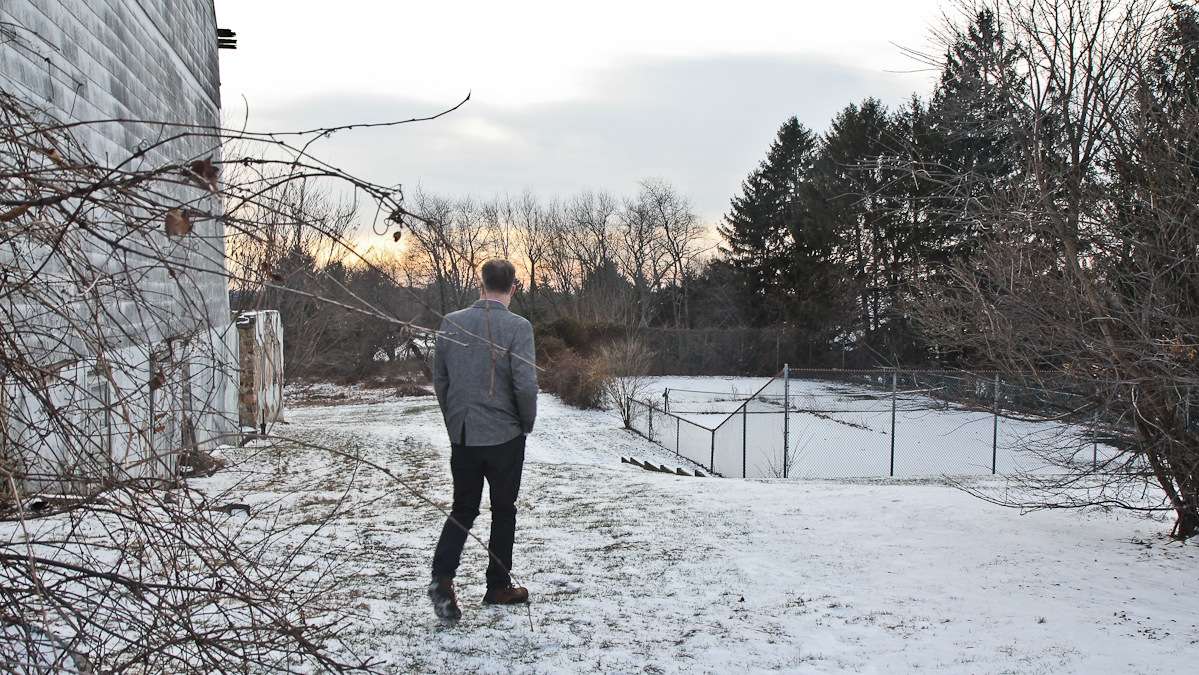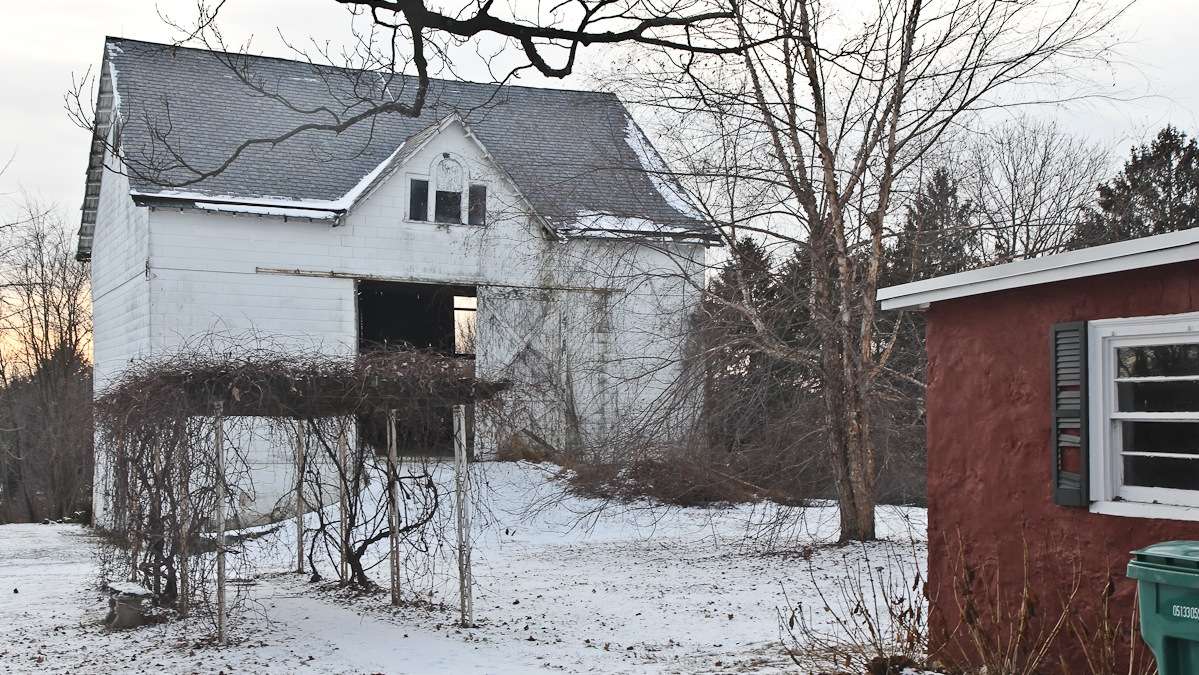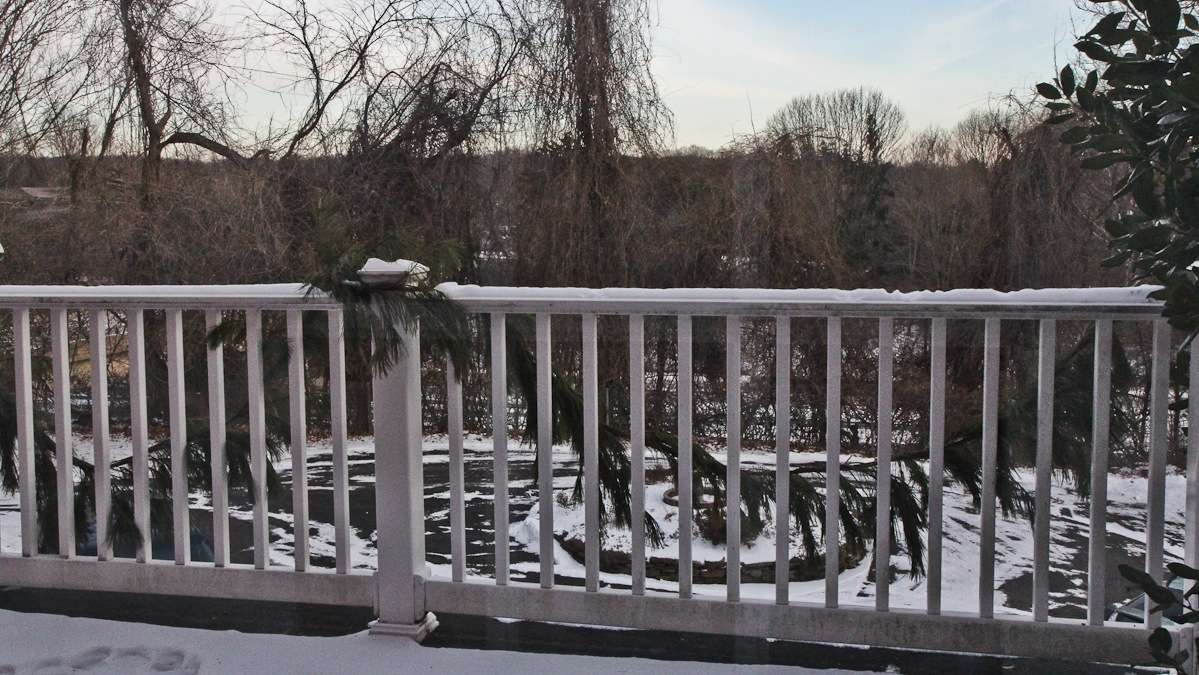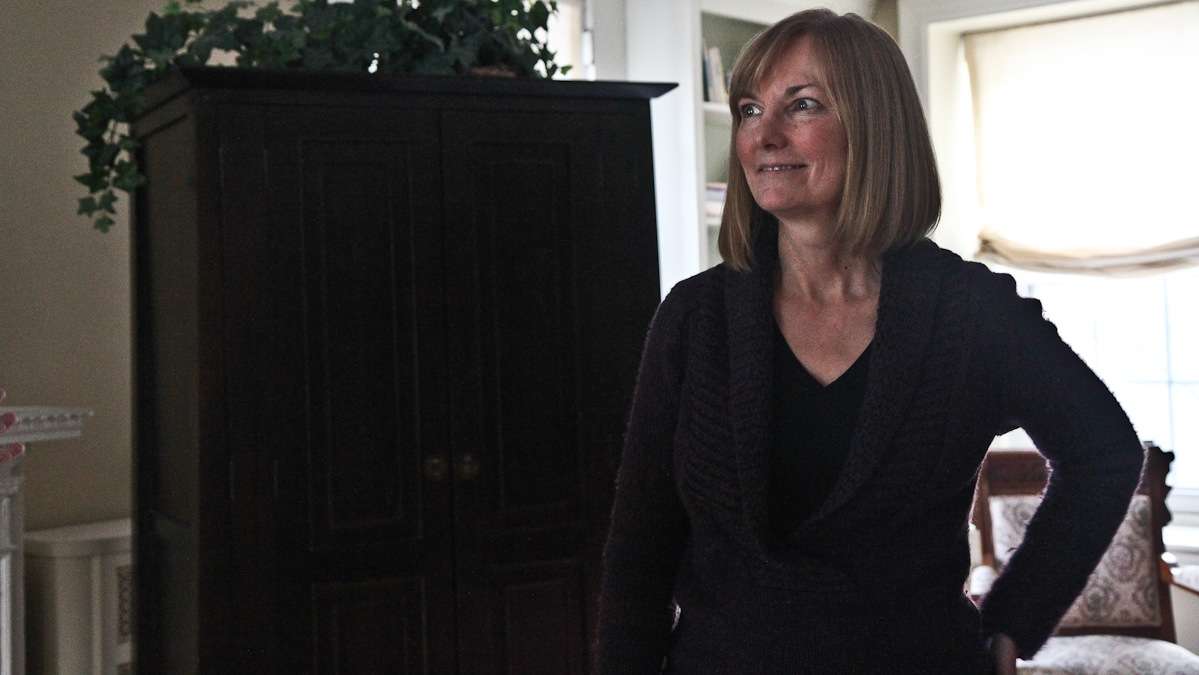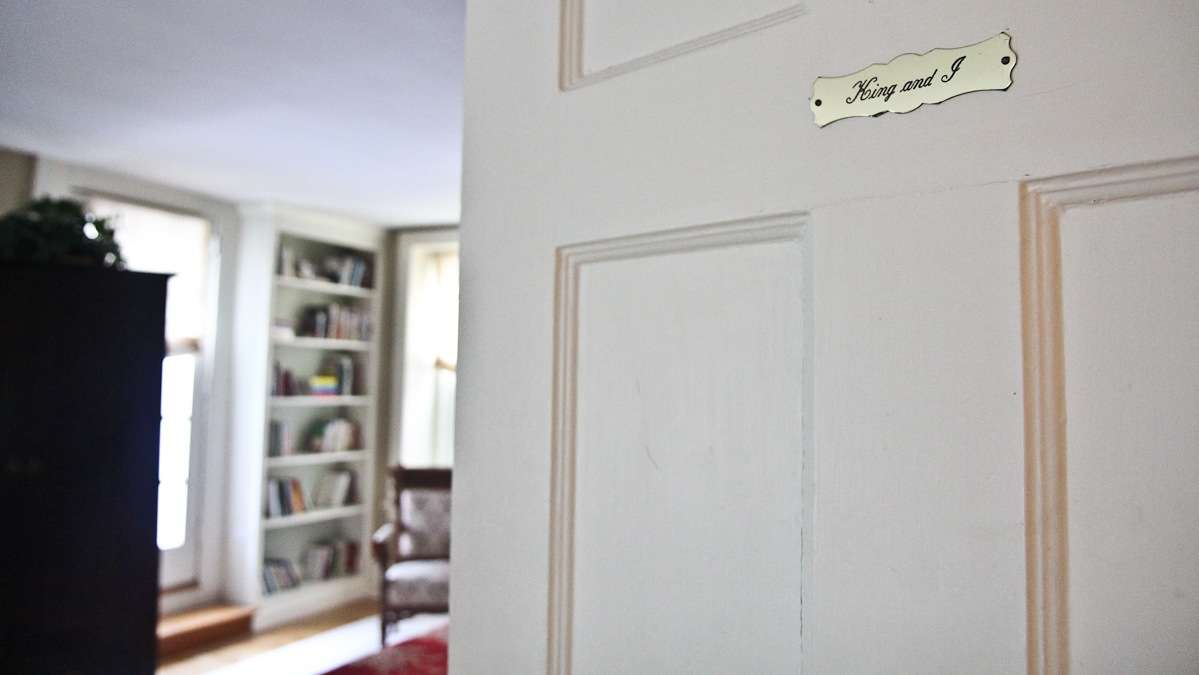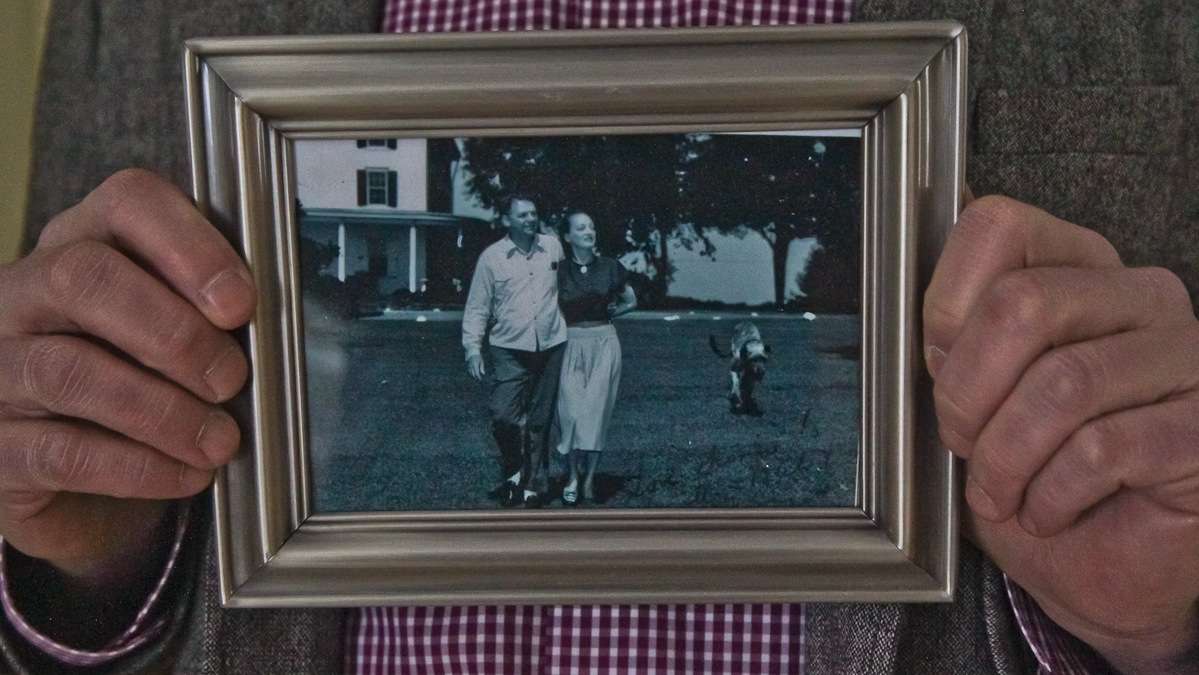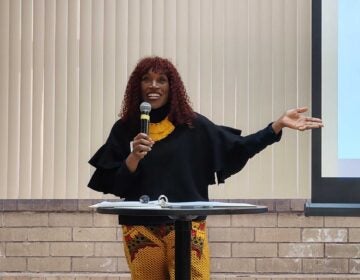Grandson thinks big to save Oscar Hammerstein’s farm in Bucks County [photos]
ListenSome of America’s most famous musicals including “Oklahoma,” “The King and I” and “The Sound of Music” were written by Oscar Hammerstein at a Bucks County farm. The large house, the barn and the rest of the property are in trouble, at risk of becoming an upscale housing development.
Now Will Hammerstein, his grandson, has an ambitious plan to save it, but it’s running into trouble with the local zoning board. Supporters say it’s a rare chance to celebrate the work and legacy of a man who transformed American music from right here Bucks County.
Hammerstein bought the 40 acre farm outside Doylestown in 1940 and “Oklahoma!” took inspiration from the surroundings.
Remember the lines ” there’s a bright golden haze on the meadow” and “corn as high as an elephant’s eye?” Well, Hammerstein wrote them at the farm and he you can’t help but find the imagery during a visit.
“It was directly inspired by this place, you can say it’s an ode to Highland Farm,” he said. “He just loved Highland farm. If you want to know how much listen to “Oh What a beautiful morning.” It’s a love song!”
Will Hammerstein never visited his grandfather at Highland. But his father told him plenty of stories about life there. Now the lawyer and screenwriter is spending much of his time trying to rescue the property by creating a museum and performance center dedicated to Oscar Hammerstein’s life and work. It’s a complicated real estate process involving easements, permits, water runoff calculations, traffic, on-going zoning meetings and of course, concerned neighbors.
Doylestown Township Council Supervisor Rick Colello says he likes the idea of having a house museum, but opposes Will Hammerstein’s larger project.
“What they’re asking us to do is to give them some variances, bend the rules so to speak,” Colello said. “Let me tell you I support the Hammerstein museum, to have a house tour would be fantastic. What they’re proposing far exceeds what the law. What the ordinances say and that’s what the residents elected me to uphold”.
But Will Hammerstein says a house museum would not be economically sustainable. At issue here is not just a question of real estate, says Det Ansinn, council president of neighboring Doylestown Borough, but of preserving and sustaining a place crucial to understanding the history of American music theater.
“If we don’t do anything and take no action and the McMansions are built we’ve lost that bit of history,” Ansinn said. “We’ve lost that connective tissue that really makes a community.”
It was here that Hammerstein got his groove back after a series of lesser-known theater works. It was also here that the lifelong partnership with Richard Rodgers developed and flourished. It was here that he mentored a young Stephen Sondheim.
After all, says Bucks County cultural historian, author and curator David Leopold, Hammerstein is literally the father of contemporary American music theater.
“The idea of what we call the musical today, is because of Oscar Hammerstein,” Leopold said. “He changed the idea of sort of brainless musical into something in which you could actually tell a story and we take it for granted, how else could you tell it differently why would anybody want these other things.”
The house where Oscar Hammerstein lived for 20 years and where he died in 1960 is now a floundering bed and breakfast. You can spend a weekend in “The King and I” or the “South Pacific” suites. Hammerstein worked in the largest upstairs room and followed a rigorous daily routine, says grandson Will.
“He kept hours like a bank clerk , so he’d give seven hours to the theater and he would give one hour to society. He would raise money for Welcome House that set up adoptions for mixed-race kids, the so called ‘unadoptable,’ or he would work with Eleanor Roosevelt for housing discrimination or he would write presidential campaign speeches for Adlai Stevenson”.
When you think about it, he adds, themes about social and racial inequality, permeate his grandfather’s work. Just think of “Showboat,” “South Pacific” and “Carousel.”
At the farm, when he didn’t need quiet to concentrate, Hammerstein let neighborhood kids use the pool and tennis court.
“He had a system of flags that he would put out in the street and the kids would come and see the flags and it would say stay away and be quiet or its ok to swing in the pool or what have you,” said Will Hammerstein. “It was sweet.”
Only five acres remain of the original 40-acre farm. The house and the crumbling barn occupy half of them, the rest are ready to become modern houses should the Hammerstein project fail. The museum center and theater would showcase Hammerstein’s ample cultural legacy. “I want to see actors on stage 150 feet away from were Oscar wrote those hits,” said the grandson.
Right now everything is at standstill. Will Hammerstein and his associates have presented a set of revised plans trying to respond to the Zoning Board’s objections. Supervisor Rick Colello rings a note of hope: ” I’m very confident that if they can meet and say we can meet your ordinances, we would be happy to have them.”
But, as anything that has to do with real estate, it will take months of meetings and hearings before a final determination is made.
WHYY is your source for fact-based, in-depth journalism and information. As a nonprofit organization, we rely on financial support from readers like you. Please give today.



